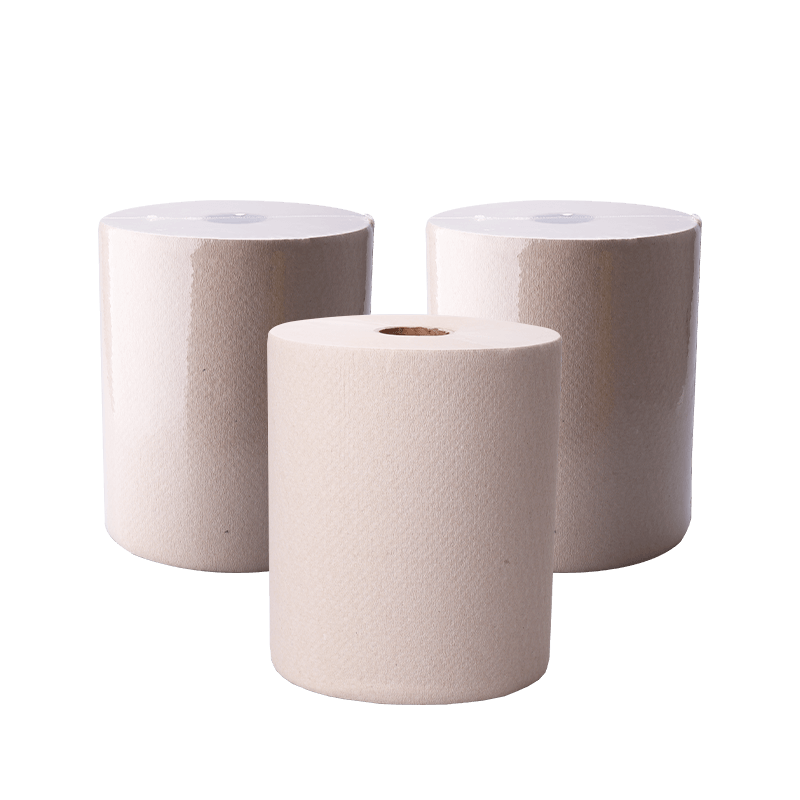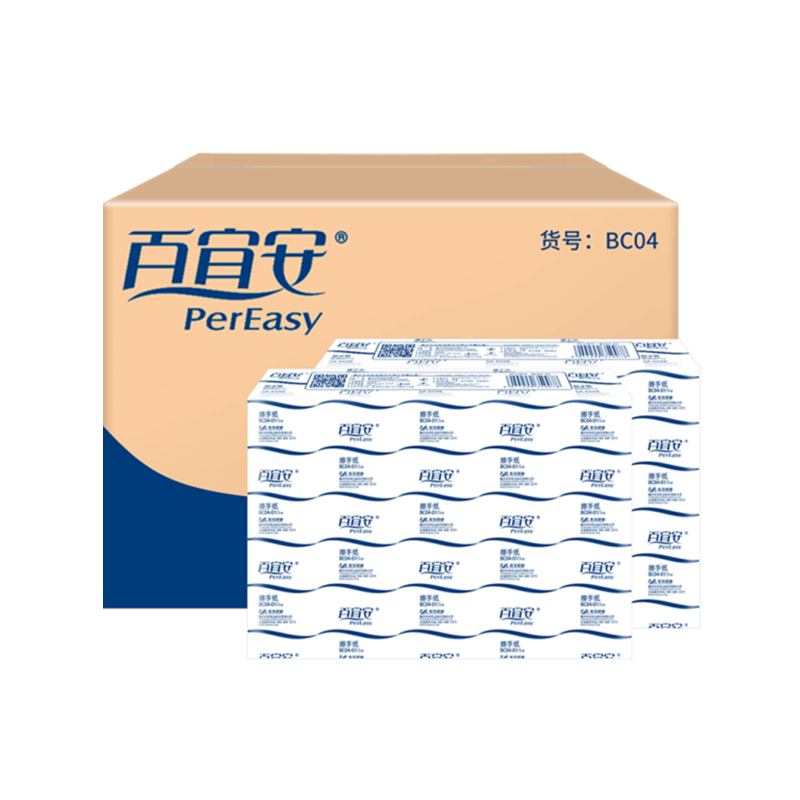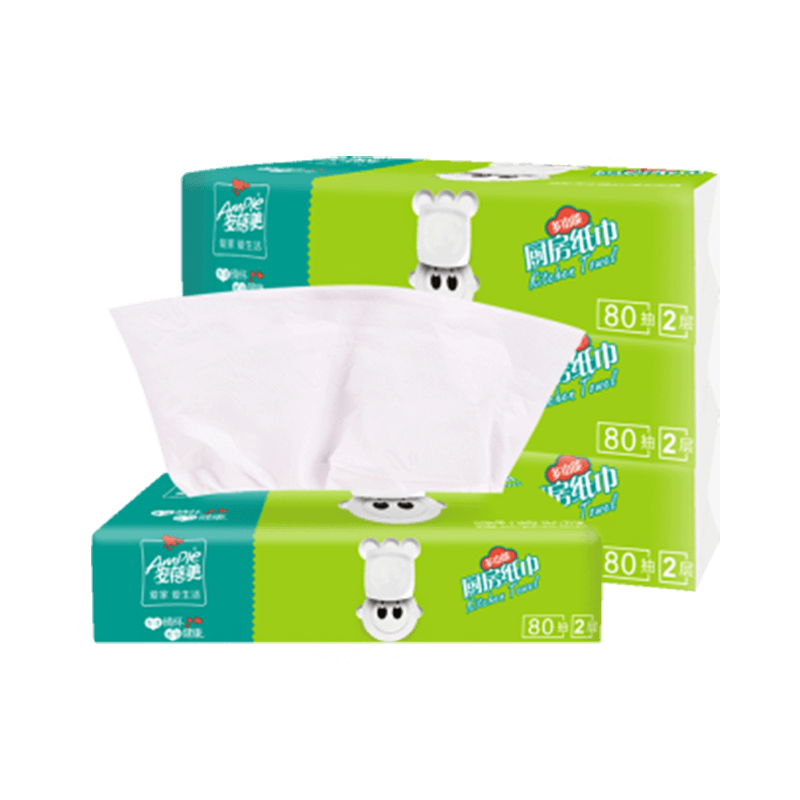Reusable vs. Disposable Hand Paper Towels: Which Option is Better
Hand paper towers are a vital aspect of personal hygiene, particularly in workplaces, public restrooms and in private homes. Making the decision between reusable and disposable hand paper towels isn’t just an issue of convenience, it has to do with the impact on the environment, hygiene and user preference. Knowing the advantages and disadvantages of disposable and reusable hand paper towels can help companies and individuals make informed choices for environmentally sustainable and efficient hand towel options.
Understanding Reusable Hand Paper Towels
Reusable hand paper towels are gaining popularity as a sustainable alternative to paper towels that are disposable for hand drying. They are designed to be used several times before washing can reduce the amount of waste produced and impact on the environment as well as providing practical hygiene benefits. To understand the role they play, it is crucial to study their benefits as well as their limitations, the various kinds and their common uses.
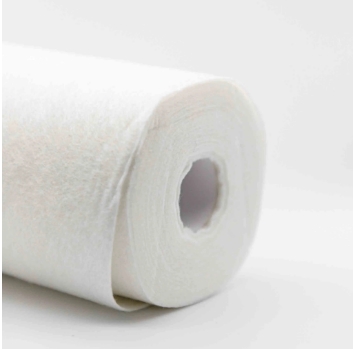
Advantages
Reusable towels have a variety of benefits which make them a desirable choice for those who are environmentally conscious:
- Environmental Sustainability: Through reducing the volume of single-use waste paper, the use of reusable towels helps conserve natural resources and reduce landfill contribution.
- Cost-Effectiveness: While purchasing the first item and subsequent laundering infrastructure could require investment in reusable towels, they can help cut down on long-term costs as in comparison to buying disposables on a regular basis.
- Softness and Comfort: Fabric towels, which are typically comprised of microfiber or cotton tend to be more gentle on the skin when compared to the rougher paper towels.
- Reduced Resource Consumption: Effective laundry systems can reduce consumption of water and energy which makes the impact on the lifecycle of towels that are reusable lower than disposables in a lot of cases.
- Customizable and Durable: Reusable towels are available in a variety of sizes, textures and materials that are able to be adapted to particular drying requirements, and they are able to withstand numerous washing cycles.
Limitations
Despite their many benefits they also have issues:
- Hygiene Concerns: If not washed properly The towels you reuse can hold viruses and bacteria, which can pose health hazards.
- Laundering Requirements: Effective cleaning requires access to a proper laundry facility as well as detergents and drying methods. These can be expensive or logistically challenging in some environments.
- Maintenance and Handling: Sorting, regular collection, and washing requires a lot of operational efforts and technical infrastructure.
- Initial Costs: The purchase of reusable towels and the investment in laundry systems could require more upfront costs.
- Limited Use in High-Traffic Areas: In areas where there are massive crowds, the use of reused towels may not be appropriate due to hygiene guidelines and speed of turnover.
Types
Reusable towels differ in terms of material and design:
- Cotton Towels: Soft, abrasive, and durable, perfect for drying with ease.
- Microfiber Towels: Fast drying and highly absorbent, typically employed in commercial settings.
- Linen or Hemp Towels: Natural fibers with antimicrobial qualities and eco-friendly options.
- Towel Rolls: Fabric rolls disperse like paper towels, however, they can be washed and reused.
- Individual Cloth Towels: Personal towels that are used at home or at work, which are cleaned regularly.
Applications
Reusable paper towels are well-suited to a variety of settings where sustainability and hygiene cross paths:
- Homes: A popular choice for eco-conscious households looking to reduce their waste.
- Offices and Workplaces: In facilities that offer on-site laundry facilities or contracted cleaning services.
- Hotels and Spas: The most luxurious establishments can offer guest towels that are reusable as a sustainable, luxury alternative.
- Schools and Universities: In some instances, reusable towels are used to complement other hand drying methods.
- Healthcare Facilities: In restricted, controlled areas that have strict laundering guidelines.
- Restaurants and Cafes: In back-of-house areas, or bathrooms for employees, where laundering facilities are accessible.
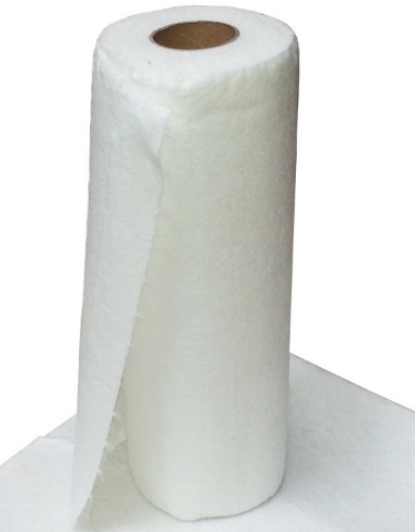
Understanding Disposable Hand Paper Towels
Disposable hand paper towels are an extremely popular option for hand drying in commercial, residential and public spaces. Created for single usage and quick disposal, they can provide the convenience of hygiene and cleanliness however they also pose environmental issues. To fully understand their purpose it is crucial to study their benefits and disadvantages, their limitations, the types and the most common uses.
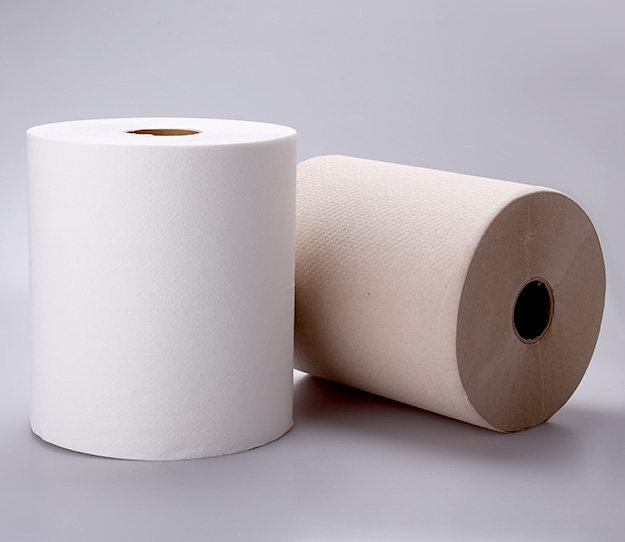
Advantages
Disposable paper towels provide a number of benefits that support their widespread usage:
- Hygiene and Convenience: Since they are used only once and then discarded disposable towels reduce the risk of cross-contamination in public and high-traffic areas.
- Ease of Use: They don’t require maintenance, washing or cleaning after use, thereby simplifying bathroom management.
- Availability and Cost: Available in a variety of sizes and prices Disposable towels meet all budgets and requirements.
- Quick Drying: Paper towels are effective at absorbing moisture and speed up hand drying.
- Integration with Existing Systems: A lot of dispensers and restrooms are specifically designed for the use of disposable paper towels, making the integration simple.
Limitations
Despite their ease of use however, disposable towels do have some disadvantages:
- Environmental Impact: Their one-use nature creates huge quantities of waste, which often end in landfills or incinerators. This contributes to the problem of pollution.
- Resource Consumption: Production requires significant amounts of water energy, as well as raw materials, particularly trees, which can cause the deforestation process and carbon emissions.
- Cost Over Time: Continuous buying leads to constant costs, which can be significant in large facilities.
- Waste Management: Disposal poses challenges to the handling of waste, and it also adds to the burden of landfill.
- Limited Recyclability: While some brands provide recycling or recycled options the majority of utilized paper towels have been found to be dirty and not suitable for recycling.
Types
Disposable paper towels are available diverse forms to meet diverse requirements:
- Single-Fold Towels (N-Fold): In public restrooms, dispensing one at a given period to allow for a controlled use.
- Multifold Towels: The device is designed to distribute sheets of paper, which are for use in areas of moderate traffic.
- Roll Towels: Large rolls which can be pulled and taken off, typically employed in commercial kitchens or bathrooms with high traffic.
- Recycled Paper Towels: Produced in part or all from recycled fibers in order to reduce the environmental footprint.
- Bleached vs. Unbleached: Bleached towels provide a more refined appearance, while unbleached ones are more environmentally friendly.
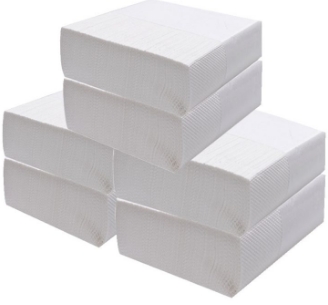
Applications
Disposable towels are extensively employed in many contexts:
- Public Restrooms: Parks, airports, malls and other places where cleanliness and comfort are essential.
- Offices and Commercial Buildings: For quick and safe hand drying to employees and guests.
- Healthcare Facilities: Clinics and hospitals often utilize disposable towels to limit the chance of contracting an infection.
- Restaurants and Food Service: Disposable towels are a must for food preparation and in areas of service for reasons of hygiene.
- Schools and Educational Institutions: In restrooms used by students to ensure ease of maintenance and hygiene.
- Events and Temporary Facilities: Portable restrooms and events use disposable towels due to the absence of infrastructure for laundering.
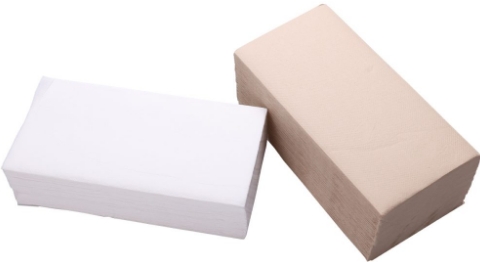
Key Differences Between Reusable and Disposable Hand Paper Towels
| Aspect | Reusable Hand Paper Towels | Disposable Hand Paper Towels |
| Usage | The design was created to be multi-purpose prior to washing | It is intended for single-use and instant elimination |
| Material | Typically, microfiber, cotton or any other fabric | Paper pulp is the basis for it The pulp is bleached, or unbleached. |
| Hygiene | Needs to be washed properly to ensure the hygiene | Hygienic due to a only-use design |
| Environmental Impact | Long-term impacts less severe; reduces the waste from landfills | Impact is greater; it contributes to the deforestation process and landfill load |
| Comfort | More supple and skin-friendly | Sometimes rougher, and especially low-quality alternatives |
| Waste Generation | Minimal waste, with appropriate reuse | The high amount of waste generated by the single-use nature |
| Customization | Design can be customized in terms of size, material, and design | Customization is limited. Most of the time, it’s typical formats |
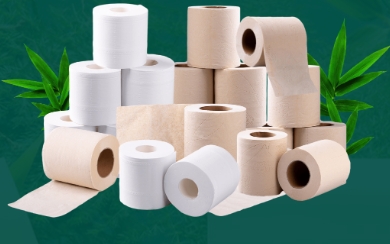
Key Factors to Consider for Choosing Between Reusable and Disposable Hand Paper Towels
The selection of the right hand paper towel, whether it is reusable or disposable demands carefully weighing of many aspects and the best choice is based on the particular requirements of the setting in which they are utilized.
1. Hygiene Requirements
In environments where hygiene is paramount–such as healthcare facilities, food service areas, and public restrooms–disposable hand paper towels are often preferred. They minimize the chance of cross-contamination because they are only used once and then removed. Contrary to that the reusable towels must follow strict washing procedures to ensure hygiene standards.
2. Environmental Impact
Reusable towels generally offer an environmentally friendly solution and are particularly effective when washed in a sustainable manner. They help reduce the amount of waste that goes to landfills and reduce consumption of raw materials over the course of time. However disposable towels produce large amounts of waste and consume more resources in the process of production, particularly when they are not made with recycled materials.
3. Cost Considerations
It is also important to consider the financial aspects. a second significant factor
- Reusable Hand Paper Towels: More initial cost, but less expensive in the long run due to their multiple applications.
- Disposable Hand Paper Towels: Less initial cost, but the costs can be high in areas.
Facilities should weigh the long-term benefits against budgets for short-term needs.
4. Maintenance and Infrastructure
Reusable towels require regular washing drying, storage, and laundering facilities. This might not be suitable for every location. This makes them ideal for environments that are controlled, such as houses or offices that promote sustainability. Contrary to disposable towels, they require no infrastructure, which makes them suitable for public restrooms as well as temporary installations.
5. Usage Frequency and Volume
Highly-trafficked areas that see a lot of use typically favor disposable towels for efficiency and hygiene. However, in less-traffic environments or areas where sustainability is the primary concern recycling towels can be an effective and sustainable choice.
6. Comfort and User Preference
Reusable paper towels are typically gentler and more user-friendly, resulting in more of a feel. In areas where comfort for the user is paramount like spas or boutique hotels that are reusable, they might be the best choice. However, those who use public facilities might prefer the convenience and cleanliness that disposable towels.
7. Storage and Space Availability
Reusable towels require room for cleaned or used towels. This could be a challenge in small spaces. Disposable paper towels, although larger in size they can be stacked in wall-mounted dispensers, maximizing the use of space in small spaces.
8. Sustainability Goals
Companies with clear sustainability objectives can choose to prioritize reused options or choose disposable paper towels that are made from recycled or sustainably sourced materials. This choice is often in line with corporate responsibility and green certification efforts.
Summary
- For high-traffic public areas where hygiene issues are very important and laundry isn’t feasible, disposable hand paper towels might be a better option.
- For eco-conscious businesses and homes equipped with laundry facilities, reused hand paper towels are a viable alternative.
- Technology advancements like energy-efficient laundry and recyclable disposable paper towels can also affect the balance.

Final Thoughts
Both reusable and disposable hand paper towels are useful in the modern management of hygiene. The balance between environmental sustainability, hygiene and cost-effectiveness is crucial. Through understanding their distinct benefits and challenges, individuals and organizations can make decisions that are in line with their values and their operational requirements, which will lead to more efficient hygiene practices.
Donsea Paper is one of the most professional Chinese manufacturers of high-quality, eco-friendly hand paper towels. Known for strong absorbency and soft texture, it offers certified, customizable hand towel products for both commercial and personal use.

